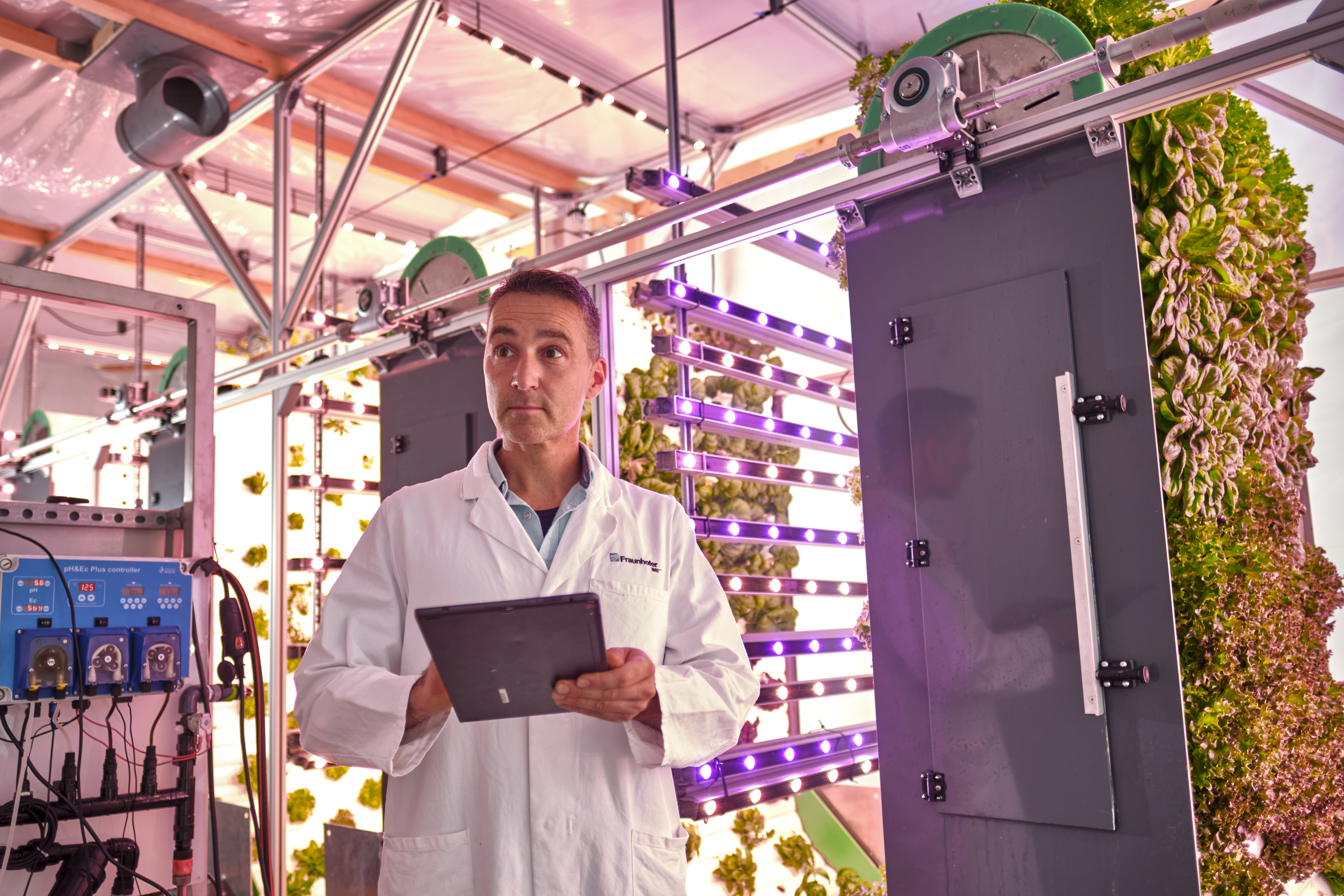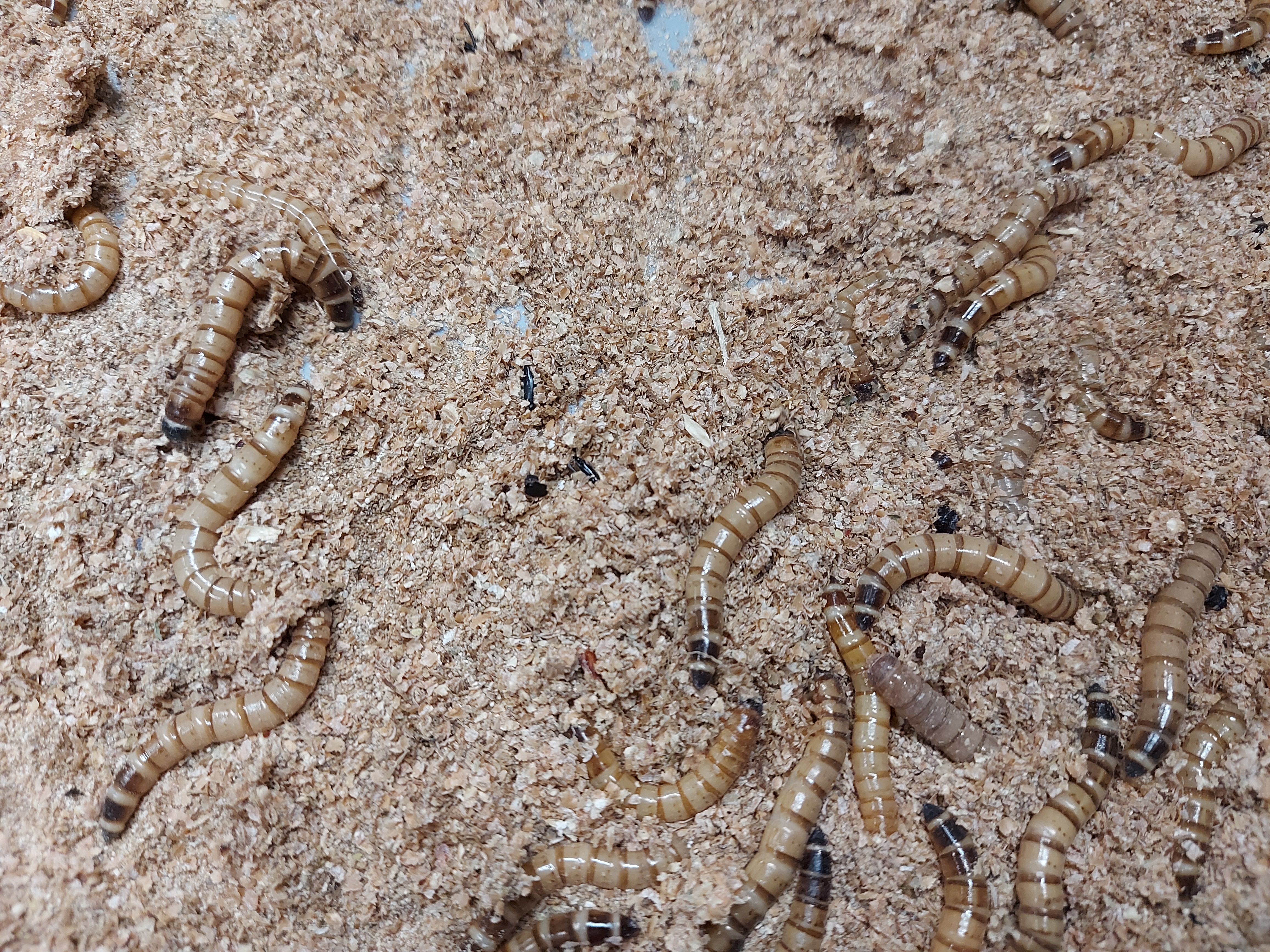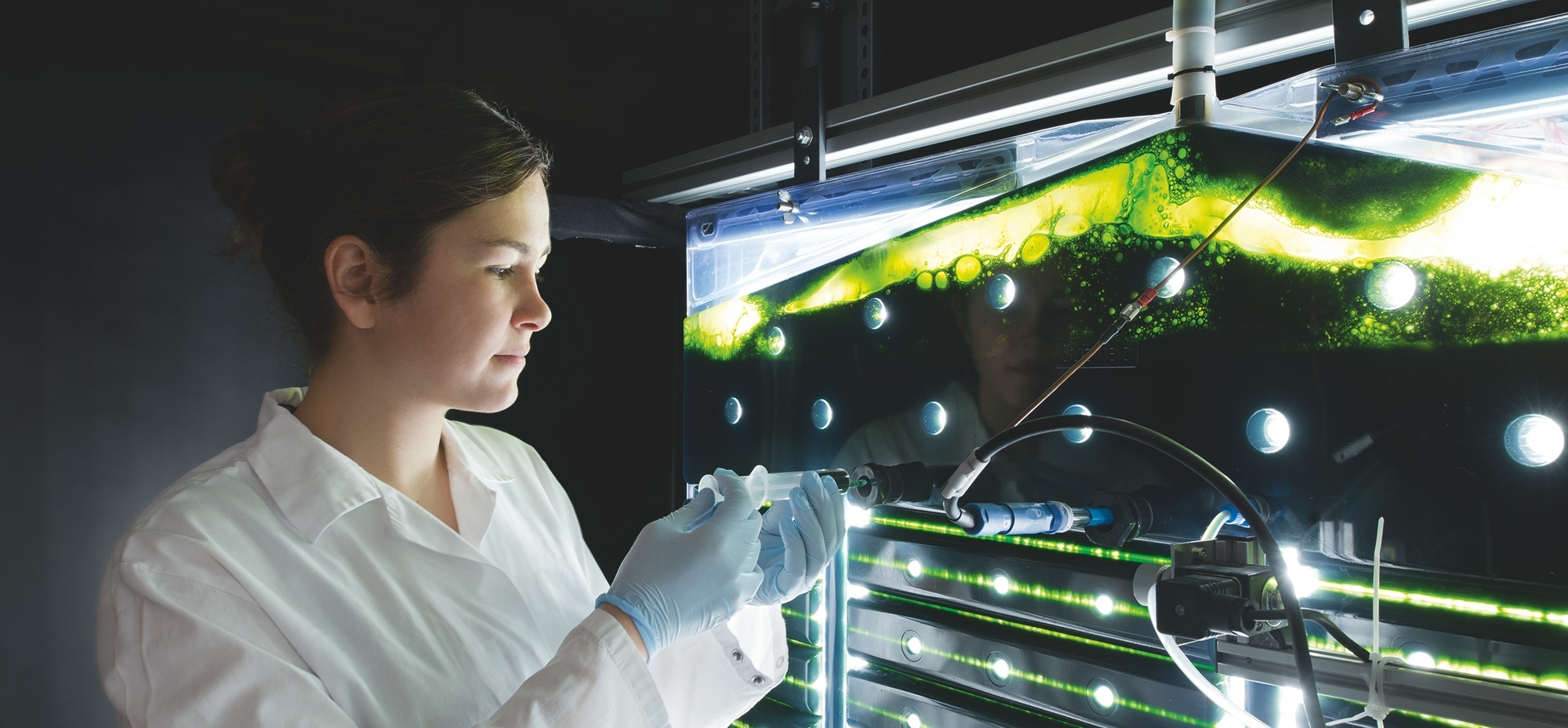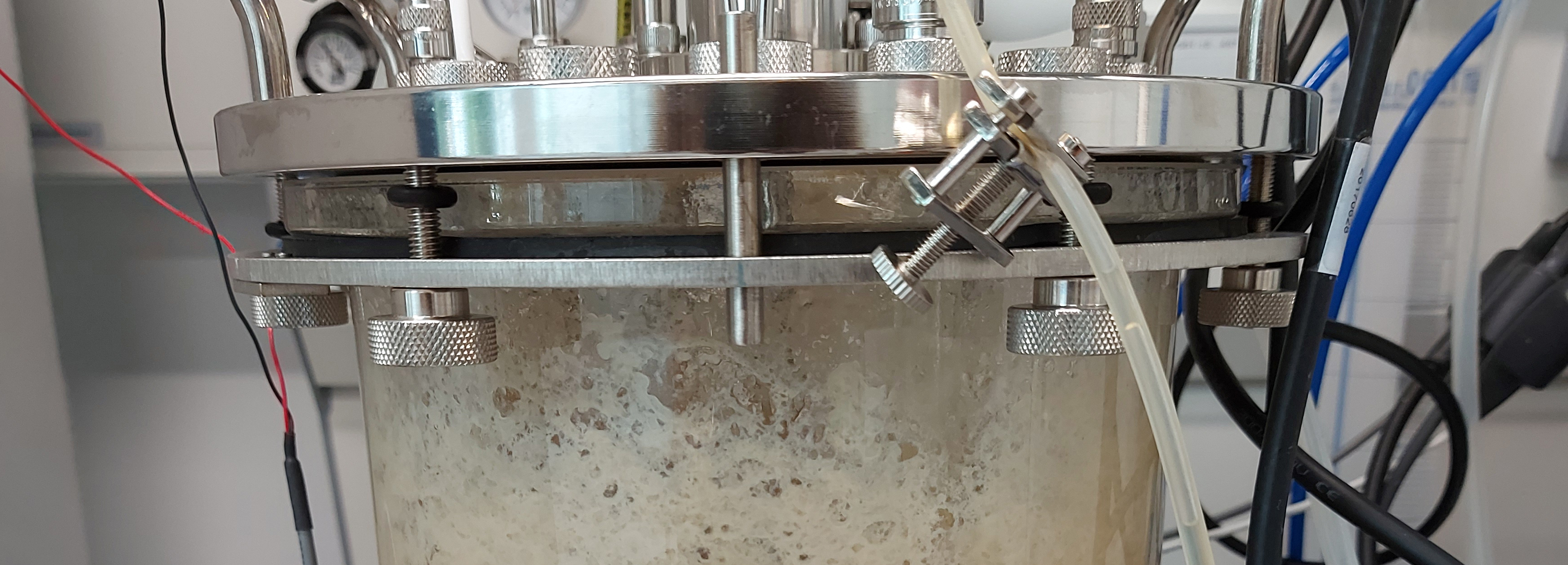Coupled agricultural systems for a resilient and sustainbale production of high-quality food proteins
The lighthouse project “FutureProteins” combines the production of alternative protein sources in closed agricultural systems with an integrated use of all by-products to create further protein raw materials. Selected plants (potatoes, wheatgrass and alfalfa), insects (mealworms), filamentous fungi as well as microalgae serve as alternative protein sources within the project. All of these sources contain high-quality amino acids that are essential for human foods as well as good processing properties, making them particularly attractive for the food industry.
The lighthouse project focuses on four closed cultivation systems: vertical farming for plants, insect farming for mealworms, bioreactors for fungi, and photobioreactors for algae. A major advantage is that the individual protein sources can be grown all year round, independent of climate, and therefore with high efficiency and resilience. Moreover, the closed cultivation systems are very resource-efficient methods compared to conventional farming processes: vertical farming requires only 5% of the usual water amount and 50% less fertilizer, while no pesticides are required.
Another important aspect of “FutureProtiens” is the use and exploitation of by-products from energy, waste and water emerging from the four applied cultivation systems and their individual processes to generate closed, cost-efficient and resource-conserving cycles along the value chain. For example: besides the manufacturing of plant-based protein ingredients in vertical farms, all plant parts will be used as a substrate for the cultivation of insects, fungi and algae, while waste heat can be used for air-conditioning in insect farming.
At last, the sensory and functional properties of the new protein sources will be optimized and refined for a broad application spectrum in the food industry. This comprises the development of food formulations with an improved nutritional profile as well as the evaluation of consumer acceptance and sustainability factors.
The duration of the lighthouse project will span four years. Within Fraunhofer, the project is of high relevance for the strategic research fields “Bioeconomy” as well as “Resource Efficiency and Climate Technology” and for the lighthouse market “Food Economics”. The ambitious aim of “FutureProteins” is a novel and particularly sustainable approach, based on global demand, which lays the foundation for new development projects and for a future technology leadership by Fraunhofer in the agricultural and food sector.
Participating institutes
- Fraunhofer Institute for Molecular Biology and Applied Ecology (coordinator)
- Fraunhofer Institute for Process Engineering and Packaging IVV
- Fraunhofer Institute for Interfacial Engineering and Biotechnology IGB
- Fraunhofer Institute of Optronics, System Technologies and Image Exploitation IOSB
- Fraunhofer Institute for Machine Tools and Forming Technology
- Fraunhofer Institute for Environmental, Safety, and Energy Technology UMSICHT
 Fraunhofer Institute for Molecular Biology and Applied Ecology IME
Fraunhofer Institute for Molecular Biology and Applied Ecology IME


